#english major hours
Text
The shitshow at the fuck factory parallels. Roman's denial and refusal to acknowledge that his dad might be dead. Kendall's coping by throwing around his authority and trying to summon "better doctors" like that will solve the problem. Shiv getting mad at the people focusing on the business end, then trying to game the system and hide Logan's status. Kendall being the sibling that knows they have to focus on the business end. Connor marrying Willa like him calling her to the hospital to the disgust of the family. The close associate (Frank and now Gerri) fired but only in words for the sake of Roman. The attack up in the private jet just like up in the helicopter.
All this time later and they're still the exact same fucking family they've always been.
I am physically unwell.
#succession#succession spoilers#English major hours#kendall roy#roman roy#shiv roy#connor's wedding#parallels#successionposting
3K notes
·
View notes
Text
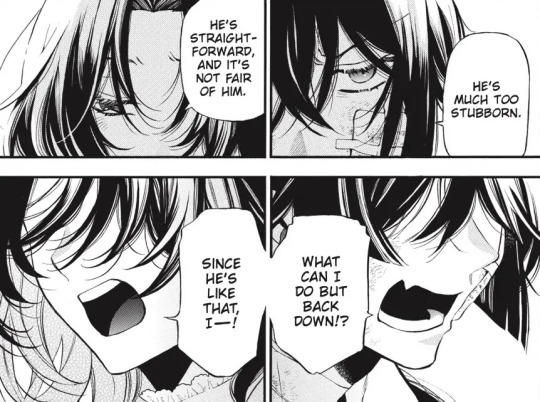
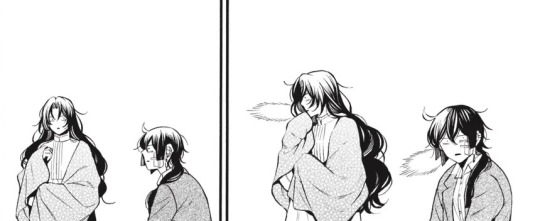
I think this point got a little lost amid the general fandom glee at Dominique and Vanitas bonding (or at least it did for me), but looking back at chapter 60, the implications that this scene has for Vanitas are fucking wild.
It's not the only aspect of her relationship with him, but a huge cornerstone of Dominique's feelings toward Noé is the fact of her absolutely massive crush on him. Like, as much as she's venting about how he frustrates her, Dominique's thoughts on Noé in this scene are the thoughts of a woman that is canonically in love with him. And Vanitas apparently thinks/feels the exact same way.
As their shared venting reaches its fever pitch, Vanitas and Dominique both reach the exact same ending point. Noé is stubborn and overly straightforward and unrelenting, and both of them feel helpless against it. And they say as much!
They say as much, and then they both cut themselves off and flinch away in the exact same way, as though they've said too much. They've revealed some deeper truth about their feelings and the ways that Noé's force of personality affects them.
Dominique reacts this way presumably because she touched a little too close to the reality of her romantic feelings for him. The thing cut off at the end of "Since he's like that, I—" is some expression of the depths of her incredible fondness for and attraction to him. And Vanitas apparently feels the exact same way as Dominique. He expresses almost the exact same outward sentiment and catches himself and flinches in the exact same way. So if Dominique is speaking here in (albeit frustrated) love, then what emotions is Vanitas speaking from?
#we all know how much Mochijun loves to make meaning with parallels#so 'Vanitas feels the exact same way about Noé as the woman that's in love with him' cannot be a coincidence lmao#it certainly must mean *something* about him ;3#And while I know I'm not the first person to have this thought#amid all the friendship/solidarity glee. I think the gay little implications deserve extra emphasis too <3#vnc#vanitas no carte#the case study of vanitas#vanoé#vanitas#vnc vanitas#the vanoé agenda#vanitas my beloved#english major hours#long post#ID in alt text#Noé arqueueviste
769 notes
·
View notes
Text
Wei Wuxian's relationship with his own reputation when he first wakes up post-resurrection is so interesting to me. He's so foggy when he first takes Mo Xuanyu's body, but through what he first remembers through the fog, you get a pretty clear picture of what’s most important in his head.
Like, on one hand, he knows quite well that he isn't evil, and he's a little offended that everyone thinks of him as such. He protests being called a malicious ghost! And he's uncomfortable with Mo Xuanyu's summoning him, as he doesn't particularly want play vengeful spirit and slaughter the Mo clan. That's not who he is.
But on the other hand, it's clear how much he's grown used to being regarded as an object of fear. His first half-conscious thought is shock that Mo Ziyuan would "dare" to kick him, and he jokingly marvels at how someone as violently powerful as the Yiling Patriarch could be reduced to eating leftovers on the floor. His reputation is very much there at the top of his mind.
So if we take his thoughts just after resurrection as the thoughts that are most deeply engrained and automatic for him, the picture is paints is just a little bit tragic. The belief in his own goodness is second nature, but so is the assumption that others will give him a berth, and that they will do so because they're scared. The "Yiling Patriarch" had become Wei Wuxian's default state of being when he died, despite how much he never approved of that name, and it's strange for him to no longer have the lonely armor of his horrid public image.
#Wei 'hey I'm not evil. but aren't you people supposed to be scared of me' Wuxian#he really only seems to remember the broad strokes and overall impressions of his past when he first wakes up#which is an idea that really deserves a separate meta post#But I reread the beginning of the series recently#and this stood out to me big time#mdzs#mo dao zu shi#the grandmaster of demonic cultivation#wei wuxian#wei wuxian my beloved#english major hours
758 notes
·
View notes
Text
God the way s3 Greg talks about women really is just sooo
Like, when he was going after Comfrey up til Ken’s birthday, you could at least make the argument it seemed like he had a legitimate crush on her, but everything about his approach to dating after that point just seems. so divorced from any actual attraction lmao. Like, he’s clearly not feeling any actual connection with Comf once he starts dating her, and he literally picks the Contessa out of a crowd at random because “she looks nice.” He also seems completely unbothered by the fact that him and Comfrey aren’t sleeping together when he drops the “separate bedding” line.
And hell, even when he brags to Tom about hitting it off with the Contessa, all his bragging has to do with her status and what titles Greg could get from being with her. He doesn’t say a word about her looks, let alone her personality, even though it seems like the perfect place to drop a line flexing how he’s snagged a sweet/beautiful/insert-desirable-trait-here woman.
He seems much more excited about the concept of dating and/or having an important girlfriend than he does anything about the individual women he goes after. It’s like he’s not so much attracted to the women themselves, but to the ideas of status, power, and companionship.
#like he could be into women and just be this much of a gold-digging worm boy#but I gotta say#the more I rewatch. the more I understand the argument for him being gay#and just *really* in denial and repressed about it#or maybe he’s ace lmao <3#but yeah s3 Greg definitely wins the ‘weird about women’ award#succession#cousin Greg#gregory hirsch#cousin Greg my beloved#I used to be certain that Tom was Gay and Greg was bi#but I’ve kinda flipped them in my head now lol#english major hours
324 notes
·
View notes
Text



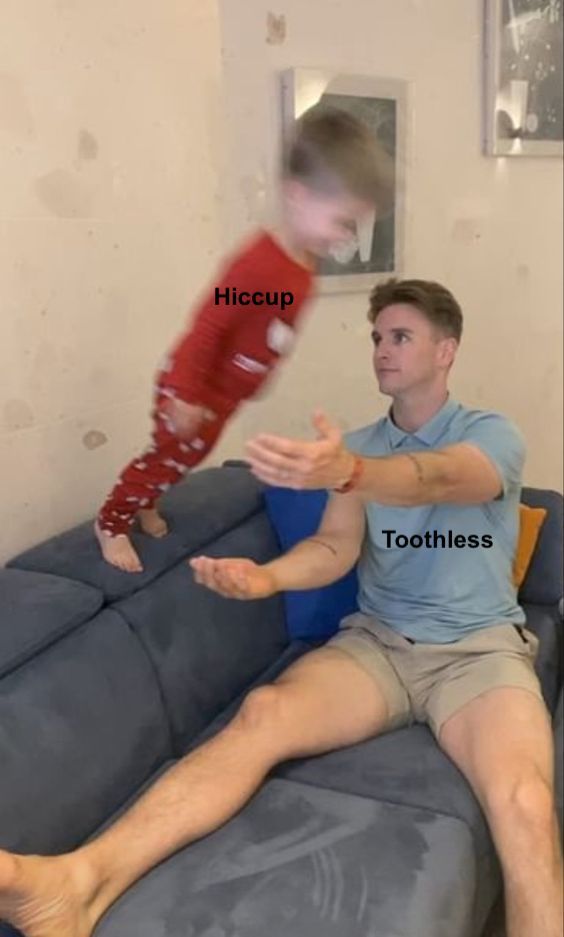
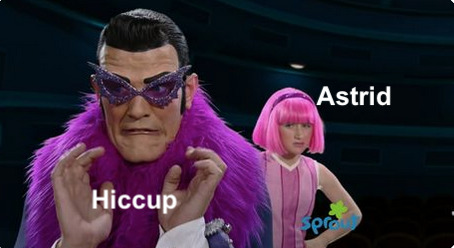
behold.
#that was very commanding of me#i have just spent the last hour explaining my knowledge of dragons to myself#and then i started on literary terms#then i got bored of my own rabbit hole#so i made these#every day i face the looming threat of becoming an english major#httyd#httyd memes
187 notes
·
View notes
Text
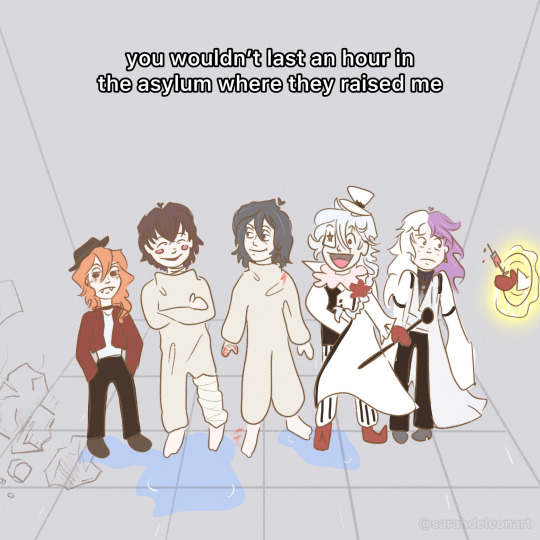
it’s funny because they barely lasted half an hour👹💉
#meanwhile us manga readers had to endure literal YEARS-#all the memes on twt made me remembr when someone who didnt watch bsd saw a screenshot& thought they were in a mental hospital &like ? yeah#anyways bsd & ttpd were both made for mentally ill English major grads (me)🫰🫶#tiny & squishy boys✨ amidst the chaos👹#fyodor#fyodor dostoevsky#fyodor fanart#dazai#osamu dazai#sigma bsd#nikolai gogol#chuuya nakahara#dazai fanart#fyozai#artists on tumblr#bsd#bungou stray dogs#bungo stray dogs#bsd fanart#bungou stray dogs fanart#bungo stray dogs fanart#anime#bsd manga#mersault#ttpd#taylor swift#the tortured poets department#you wouldn’t last an hour in the asylum where they raised me#memes#fanart
29 notes
·
View notes
Text
Twitter: Wilbur didn't do anything! There's no proof!
Wilbur in his apology:
"this persons feelings are completely vaild"
"These actions caused alot of pain to my ex-girlfriend"
"I have come to realise how much my past behaviour hurt this person"
(Realise Google definition: become fully AWARE of (something) as a fact; understand CLEARLY)
"I understood from our numerous conversation [...] consensual" followed by "while I may have perceived our interactions differently, I recognise that has processed and expressed feeling of hurt"
His "I understood" turns to a very uncertain "I may have perceived" - the additional "may have" making him seem not very confident in what he's saying.
He's confident in the things that make him look better but not confident when it comes to the overall overview of the situation because he saw it different.
He recognised that he had done something bad. This is from his apology himself!
But The Looky why are you taking apart quotes?
Wilbur Soot, on multiple occasions, has stated that he is an English Major (he literally wrote most the dsmp scripts), so why would an English major international use this type of wording.
Because when you take it apart, it makes him seem more confident in himself and pushes that he's not confident in her 'allegations'
His lack of confidence and acknowledgment is a divisive move by Wilbur to capitalise on his vulnerable fans and audience to make them believe in him more. The MEDIA and NEWS do this all the time.
It creates a "if he doesn't know what he's talking about then he didn't do it vibe" or a plain display ignorance, to make him look better.
And he made an apology UNPROMPTED, like when shelby said her ex she didn't say Wilbur.
It could have been an ex before or after him, if it wasn't him then he wouldn't need to apologise and could've been like "Hey that's not me!"
He didn't. He said it was him by making a response. Why apologise for something you didn't do?
You could argue that Shelby was a "terrible partner" or "used him for his clout" but on what basis?
If she was a terrible partner that's make a pair, and there is a bunch of evidence that support the fact that Wilbur behaves the way BOTH HE AND SHE HAVE STATED.
And if she was "using him for clout" then he could have been like, "Hey I don't like you. I don't want to stream with you anymore"
But then he joined Origins Smp and Shelby was there, they were both ghost, he goes out of his way to interact with her.
Your gonna act like if Wilbur told Tommy he was uncomfortable with Shelby being there, Tommy would have said no? Really?
And in the some Wilbur / shelby streams Wilbur was at her house.
Wilbur would have been better of saying his apology was AI generated and to have written a new one with he excuse, "he was in a rush"
#wilbur soot support#wilbur soot situation#Wilbur Soot#Discourse#shelby support squad#shelby support#shelby shubble#Mcyt#controversial#tw// abuse#HE IS AN ENGLISH MAJOR. HE KNOWS WHAT PERSUASIVE AND CONTROLLING LANGUAGE TECHNIQUES ARE AND HOW TO WRITE THEM-#HECK IN BRITISH EDUCATION YOU HAVE TO WRITE 3 ESSAYS IN 2 HOURS WHICH DISOLAY PERSUASIVE LANGUAGE TO CONVINCE THE MAN MARKING IT#IT IS A HIGH SCHOOL LEVEL REQUIREMENT TO BE PERSUASIVE I AM NOT JOKING THEY TEACH YOU THIS IN SCHOOL
23 notes
·
View notes
Text
Long ass ramble on Mariner and Boimler and their relationship
I think the first step in why Mariner comes to care for her purple dork is the fact that he surprised her. These two idiots knew each other for about a year by the first episode, had probably been around each other a lot being bunk mates, so Mariner probably had a confident idea of who Boimler was deep down. She saw him as a product of propaganda and social engineering. The kind of guy who would sell her and a ship of refugees out for a superior's nod of approval. Someone who saw rank as the end all be all of what Starfleet had to offer.
So, when he ends up not ratting her out on that first episode, I think that may be one of the first times since she'd become more cynical towards Starfleet that Mariner had gotten someone wrong, that they proved them to be a little bit better in her book. So from there, she becomes attached, thinking there's hope for this bootlicker. Maybe, if he turned out to be better than she pegged him for, he could be trusted. Maybe this organization where she's been listlessly dragging herself up and down the ranks in some kind of administrative limbo can really do good. And some part of her that's been questioning if she belongs here at all, doesn't even believe she could really belong on her own mom's ship, thinks that maybe she's found somewhere and someone with whom she does belong.
Boimler's side of things is... very similar. Mariner surprises him. Constantly surprises him. She breaks protocol, disregards authority, spits in the face of the Prime Directive. She's an ensign, same as Boimler himself, but Mariner is easily one of the most frustratingly amazing and impressive people he's ever met, having stories rivaling many starfleet legends, and having the skills and contacts to back them up. And she shows him that she's not just some tantruming rebel, she actually does care, wants and is willing to go the extra mile to help. To do the kind of things that Starfleet often professes to do, but so often just never gets around to.
Mariner challenges everything that Boimler thought was concrete: the infallibility of starfleet, the concrete importance of established protocol, the belief that the achievement of rank is the most certain sign of purpose and importance. She is everything he wants to be and not. She is sociable, likable, able, strong, witty, quick on her feet, and yet she also possesses none of the bigger-picture ambition to do something widespread and worthwhile with her ability. Mariner lacks some of the sensitivity and cautiousness that comes with avoiding unnecessary disaster, and the desire to achieve a higher rank to actually combat the shortfalls of Starfleet she complains so much about.
It's in that mutual challenge that their mutual importance is found: they're each other's anchor. Mariner anchors Boimler so he doesn't get swept up in monotonous idealism, and Boimler anchors Mariner so she doesn't wash away in listless despair.
And I think that's why Mariner is so angered by Boimler's leaving for Titan. It's why despite professing some kind of cool when it comes to dealing with disappointment, she is so stuck up on him that she leaves him dozens of angry messages, demanding an explanation. Why, months after he left and no chance of him returning, she still keeps onto the idea that he's still there or will be back, like keeping spaces for him in the showers. Because it wasn't just that he betrayed her, and right after professing friendship. It's that him leaving her, and so coldly, implies that she was right about him from the beginning. Boimler leaving for the Titan proved her instincts right, that other people, especially those in starfleet, couldn't be trusted. To do what really matters. You couldn't trust others to not hurt you if you trust yourself to them.
Boimler, I think, does not realize he's lost his anchor. He doesn't realize it for a while. On the Titan, trying to survive every batshit crazy operation Riker sets them on takes precedence. When he isn't screaming his lungs out in a wordless prayer to the cosmic koala for survival, he's trying to reconcile what he thought he joined Starfleet for and what he actually wants to do. Boimler isn't in this for the missions, or even the glory (mostly, he still likes to brag a bit, I mean who wouldn't). Boimler wants to be an explorer and a diplomat. Someone who wants to learn what there is to know about this insane deadly universe they're somehow prospering in (he's someone excited for anomaly consolidation duty, and sometimes has a close to encyclopedic knowledge of the things they're dealing with, like Tendi and the cube). He wants to find and learn about other cultures, wants to find and learn how to make new friends (even if his execution on that last bit is clunky and awkward at best, at least for now).
Boimler realizing how important Mariner is to him doesn't come until 2x5, when only he is able to get into Starfleet's biggest party with its biggest names. The shouting pulls through, the hurt comes back, and Boimler and Mariner go separate ways again. But when Boimler finally has his dream of rubbung elbows with the top brass, he sees the party differently. Maybe a little more like Mariner would. Boimler doesn't see people schmoozing and networking. He just sees a party, full of people enjoying the company of those they trust and love. This is where Boimler realizes some of the true weight of his leaving, and just how much it affected him in turn, not having his anchor with him.
Now I'll be honest here in that I haven't really watched much TOS, so I'm missing some of the full gravity of the comparison betwen Kirk and Spock and Mariner and Beckett. What I do know is that they were combative but also complimentary, one was the charismatic daredevil that flounced the rules, and the other was more by the book and research-oriented, though the LD dynamic duo I guess has much more in the way of neuroticism and personal dysfunction. I know I'm doing a bad job of distilling Spock and Kirk's dynamic, so please let me know if I'm off the mark, or elaborate on how this might fit into my little spiel. But the point is that here is when both realize how important they are to each other. Seeing those names carved into the counter of a bar, following perhaps a similar story of how Kirk and Spock ended up there, Mariner and Boimler now realize that they can come back from this. They have the potential to do great things together, but more importantly, they just want to be in each others' lives again.
When they get stranded, there's once again the issue of trust. Mariner still clings to that idea that she is the mentor and better of Boimler, and so she has to look out for him, whether or not he realizes or wants it. She doesn't trust hum to do well on his own or to make the best decisions. At the same time, we see Boimler stepping up a bit. He takes the douche-bot AI with them against Mariner's idea to just bury it (at first) to keep monitoring AGIMUS, he tries to climb the tree to get fruit himself because Mariner is injured, and even just shuts Mariner down a bit when she's anguished that that shithole planet's fruit somehow also tasted like black licorice. We see hints of Boimler being a bit more confident, a bit more capable and sure of himself, without empty pride being the only thing in his arsenal. And when it seems like Mariner was right all along and Boimler fell for some manipulation, it's revealed that he was playing AGIMUS, playing both of them like a fiddle. Boimler had a plan, executed it flawlessly, apologizes to Mariner for deceiving her, and gets them rescued. Now, both of them still know Mariner is far and away the more capable of the two in most areas, but Mariner now doesn't see Boimler as some hapless naive child. She'd still go out of her way to save his butt, but not because he's her self-proclaimed responsibility, rather because he's her friend.
In 3x1, Mariner is depressed and angry. Her mother's in custody, in a public trial, and she can't do anything, except apparently trust the system. Despite empty assurances from her father, Mariner is unable to find hope for her mother. So she goes to her anchor, Boimler, to try and find hope where none exists. And here, we see the growth of their bond. Even stuck planetside, they find each other. They're anchors, in a sense. Through Boimler, Mariner is able to find some kind of hope thst she can save her mom. Through Marjner, Boimler finds a new purpose so doesn't waste away at his family's vineyard. Hell, Boimler is so ride or die at this point that he helps Mariner steal a fucking amusement park starship and board a locked down Cerritos!
During the season two finale when Mariner is about to go down in cetacean ops to release the final panel, Rutherford, Tendi, and Boimler all talk sense into Mariner, convincing her to make up with her mom before they all die or never see Captain Freeman again in what I think is a very satisfying intervention. But something I want to point out is what Boimler tells Mariner. Boimler says they'll all either die soon, or Mariner's mom will get promoted and the two may never speak again, and he asks Mariner if this is how she wants things to end. It makes me think that Boimler's talking about when he left. He left without clearing the air, without saying goodbye, without anything. He knows in retrospec how painful that actually was, how much it hurt both of them to never really try and reconcile things until the party, and he doesn't want Mariner to go through that again with her mom.
In 3x5, Boimler tries his best to keep Mariner calm and out of trouble, but he loses it, throttling conspiracy weirdos' necks like Mariner would, despite attempts by Mariner to try and calm him down. And while that is fun, something that really catches my attention is how once people start coming to their tent in genuine interest, impressed by Boimler's confidence and defense of Starfleet, Mariner actually seems genuinely interested in finding ways that people could join Starfleet. It's some kind of inversion of their roles, with Boimler being the impressive act of violence that wows everyone, and Mariner being the eager one to bring it all up to protocol.
Crisis Point 2 comes around, and even without knowing what's up, Mariner still tries to stick things through with Boimler for a while, knowing Tendi and Rutherford are off actually having fun on something with Boimler's holomovie, something she had just been teasing him about earlier. She can easily tell that he's going off his own script, but she still goes with him, not yet realizing that she's watching her friend go through an existential spiral. When she does learn about William's death, Mariner immediately goes to Boimler to be his friend. She tells him that the story may not be a good one, but it is a Starfleet story, so it's worth telling, and so they should try to find the ending they're after. This brings up two ideas: one is that Mariner hopes the holodeck can provide the same kind of therapeutic realization it gave her. The other is that she's telling Boimler that his story, irrevocably a Starfleet story, may not be glamorous or exciting the way others' are or the way he wanted it to be, but it's still important.
When Mariner leaves, things apparently get a little weird. By Rutherford's own admission, Boimler loses grasp of reality without Mariner around. He's lost his anchor, and he's a bit adrift. For Mariner, things are going well. It's honestly a bit like the Titan all over again, with Mariner having her own adventures. But something still feels off. She tries to find reason to distrust Petra and this new purpose, but it's just Mariner trying to find a reason to return. Back to Starfleet, back to the Cerritos, back to her friends and family, back to her mom, back to her anchor. In saving the Cerritos, Mariner brings back every California-class ship. In one act, she demonstrates her faith and trust in Starfleet, or at least the people in it. She finds the others that had been given up on and gives them another chance. Similar I think to the way Boimler did for her in not reporting her that first episode, and again when she welcomed him back to the ship. When she comes back on board, the first thing she does is rush and hug Boimler, finding her anchor. And what Boimler does is own up to his own lack of trust and action, apologizes, and promises to make up for it. Afterward, Mariner changes direction and wants to try her hand at making her way in Starfleet again, finding hope in her purpose in the same way she did when Boimler first decided to trust her.
*edited a bunch of typos and some weird wording
#star trek#lower decks#long post#star trek lower decks#beckett mariner#brad boimler#spoilers#i guess for the whole series?#marinler#that last one isnt necessarily a hard fact of this post#i do ship them#but i wrote with with the intention of them being platonic soulmates#sorry if you finished this#i hope it makes half sense#i watched all of lower decks in the past 4 days and wrote this with on like 2 hours of sleep#most use ive put my english major to all summer#please tell me if i remembered events wrong
91 notes
·
View notes
Text
my main problem is that i want my friends to scream at me about my writing but in order for that to happen i must Actually Write
#truly we live in a cruel and heartless society………..#anyways. this is blanket permission for everyone to send me stuff. i! am! BORED!#been working on a geology extra credit assignment for three hours…… blease i’m an english major#shrimply i am not equipped for this level of rocks#sid speaks
20 notes
·
View notes
Text
Fundamentally, what you must understand about me, as a person, is that in University I wrote a sixteen (16!!) page essay about Princess Bubblegum from Adventure Time. And I would do it again
#dont ask me what specifically i talked about#i was a history/english major#i wrote so many fucking essays + i was mega depressed#which is to say i dont remember#but i did get 95% on it . so#baz talks#i also did an hour long presentation on Animorphs once and have in the years following on several occasions#been approached and asked 'hey you did that Animorphs presentation in university right?'#like as late as last year. fully five years after i gave the presentation
11 notes
·
View notes
Note
Hello my dear
Why do you like the Stephen Crane poem so much
🫂🫂🫂
Thank you for asking Kate <33
Overall, the poem takes to exploring the themes of isolation, existential contemplation, how self love improves love to others and the harshness of the natural world. When it comes to poetry, I'm a big fan of romantic poets (Walt Whitman, William Blake and Lord Byron) who tackle the power of humanity verses the power of nature. Crane does exactly this in In The Desert, but in a really self depricating way.
First off, desert symbolism! The desert serves as a metaphor for the harsh and barren aspects of life. It's a place of isolation and challenges, reflecting the difficulties and struggles individuals face in their existence. Therefore, the desert can be a metaphor for multiple things within context; depression, general self-isolation, a toxic relationship etc. In the desert, you don't really expect to meet anybody there, so, you act how you do when no one's watching; a time when a person is at their most vunerable, which links to why the creature is "naked". It represent vulnerability and or a state of raw, unguarded honesty. Stripped of societal constructs, the creature is exposed in its truest form. It is patient zero; Cain at ground level.
And then the heart. The heart is and will always be powerful symbol in literature, typically coming with a story of love. However! Crane does something different with it; his creature chews, bites and swallows it. The act of eating the heart symbolises someone confronting and consuming their own emotions or experiences; having The Human Experience.
Since the poem is in first person, it also puts the reader directly into it, meaning we are the ones to ask the creature if "it is good", addressing it like an old friend we haven't seen in a while. And the response we get is odd. You'd think a thing, hunched over in the sand eating its own heart would either be enjoying it to no extent or suffering, but the response is simply "bitter". The repeated emphasis on bitterness suggests a recognition of life's hardships and challenges. The creature acknowledges the bitterness of his own heart, and yet, there's a sense of acceptance or even appreciation for that bitterness. It's not enjoyment or absolute hatred; it's an acceptance.
Further, human flesh is known to have a bitter taste to it (along with the ever present taste of chicken that seems to follow ever meat ever lmao), including the heart. Humans are typically hard-wired against canabalism (which, here, becomes self destruction. It takes a lot to push a human over the edge to start harming themselves deliberately) because it makes us ill to the point death is conceivable. The creature knows this, but accepts it.
Lastly, the creature takes ownership of his bitter heart, stating But I like it / Beacuse it is bitter/ Because it is my heart." Now, the creature confirms enjoyment, and it signifies the acceptance of personal struggles and the acknowledgment that one's experiences, no matter how bitter, are an integral part of who they are.
When I talked about 'cannabalism as a metaphor for love' in my repost about this, I meant it for self-love, and how it's needed for things to get better.
Looking back on it all, I think, to actually answer your question Kate, is it reflects a lot of the stuff I struggle with internally. I find it hard to accept who and what I am and find the anger I have towards myself (and at my constant lack of sleep) being pushed onto other people, which leaves me isolated; In The Desert. I have issues sometimes with seeing myself as human, so, unironically, I relate to the creature a lot. Plus, it's interesting that Crane decided that a good presentation for humanity is a naked creature, sat, completely vunerable, in the middle of an isolated desert.
(@moonchild-in-blue, thank you both for asking and letting me ramble. I'm sorry if this was boring, I don't get to do this very often <3)
#do forgive the English major in me#all my thoughts and feelings are restrained are restrained to an hour or two each week#but yeah! I love this one very much :D#mel's asks#poetry
8 notes
·
View notes
Text
Now I'm normally a big defender of the "Tom really does love Shiv" argument, but god, that scene on Logan's stairs in the last episode might be the single most manipulative thing we've seen Tom do.
Like, his whole thing this episode is that he's trying to ingratiate himself to everyone he can. Logan was his support and Logan is dead, so Tom is hanging out with the suits and trying to throw his hat in the CEO ring. He's going on about "living to serve" them. He's sneaking off to suck up to Roman and Ken. And then there's his scene with Shiv.
And like I said, I'm usually a big defender of Tom's love for Shiv. I think he originally fell in legitimate love with her as much as he was social climbing, and I think that the story he told on the stairs was about something genuine. The past Tom that sent Shiv handwritten letters and asked her constantly to tell him "yes" sure wouldn't have minded getting close to the big boss's daughter, but he also did all that because he loved her.
But on the stairs? When he tells the story? He is still so deeply in "ingratiate myself" mode. He needs someone on his side in Waystar, and the best way to do that would be to make Shiv fall in love with or depend on him again. So he goes to her and pulls out the sweet romance and reminds her of the past. He says "hey, remember when you were going through a hard time and I made it good for you? remember when you fell for me and depended on me for support?" And the unspoken words behind the words are "hey, I see you're going through a hard time now, and I could be all that for you again. Don't you want that?"
He knows she wants the divorce and she's made it pretty clear that things are emotionally over, but he's trying to pull her back in while she's vulnerable.
I doubt Tom sat in a room somewhere and thought the words, "I will take advantage of my wife's emotional vulnerability," but when he went up to her and followed his instincts toward what might make her want to take him back again, that's exactly what he did.
#I dunno if I ever would have thought of tomwamb and the word 'seduce' in the same sentence before#but damn#Tommy knows how to sell himself#and he's fucking evil for it#<3#succession#succession spoilers#tom wambsgans#siobhan roy#tomshiv#shiv roy#tom wambsgans my beloved#failmarriage tag#honeymoon states#successionposting#english major hours
485 notes
·
View notes
Text
I've been thinking lately about Vanitas and Noé's first "what is salvation" fight at the bal masqué and what it means about their individual definitions of the concept, and I've realized something about Vanitas.
Noé's definition of salvation is the obvious one. It feels natural. To save someone is to keep them from dying. But in a way, his understanding of salvation is also almost selfish. Noé's foundational trauma is the constant loss of his loved ones. He is the eternal sole survivor. So of course he wants to keep people alive—he wants to "save" the people he cares about in the way that keeps them by his side this time.
It's not wrong to want that, of course. I don't mean "selfish" as a condemnation. It's just that the definition of salvation that Noé starts the series with is inarguably the one that best serves his own happiness.
And it's the same with Vanitas.
When Vanitas kills the little girl Catherine by restoring her true name, he tells Noé he doesn't know what salvation is. He might be lying there, or he might be telling the truth in that he's never put his definition of salvation into words or acknowledged it on a conscious level. Either way, though, I do think he has a definition of salvation somewhere in his mind, and it's a very personal one.
Vanitas sees salvation as the preservation or restoration of one's true self. You're saved so long as you can preserve your essential self, uncorrupted by outside forces. Even if the price of that selfness is death.
While Noé's foundational trauma that informs his worldview is the loss of his loved ones, one of Vanitas's foundational traumas is the loss of his bodily autonomy. Through Moreau's experiments and Luna's mark/bite, he has been transformed into something no longer fully human, and he hates it. From the moment Luna told him he was dying, he said he wanted to die as himself rather than live as their kin, and he has been denied that opportunity.
Nothing is more important for Vanitas than being able to dictate the destiny of his own body, and malnomen are the ultimate corruption of bodily autonomy and selfness. Altering one's true name warps not only their physical body, but their very being on a metaphysical level. The curse takes everything a vampire is and changes it, and doing that to an unwilling victim is the ultimate horror for Vanitas.
Given that context, of course Vanitas thinks that killing a child to restore her true name counts as saving her. He's restoring her essential self and un-corrupting her body and being, and even if her self is only returned for an instant before she dies, it's preferable to living on as something warped by an outside force.
Vanitas absolutely starts the series with a definition of salvation, and like Noé, it's the one that best serves his own happiness. He wants to be saved. He wants to be returned to his human self, and failing that (since he knows it's impossible), he wants to wipe out all traces of the force that changed him and then die without going any further down the path of inhumanity.
Vanitas might not be able to admit that definition out loud (or even to himself directly), but it's there, and it guides him early in the series as much as Noé's own definition of salvation guides him in turn.
#and perhaps noé will learn to see death as a form of salvation when life is corruption#and perhaps vanitas will learn to see the value of preserving (his own) life#and perhaps they'll both find a definition of salvation that is neither of these things 👀#but that's not the point of this post#anyway this is one of those concepts that I've been orbiting around and maybe gestured toward before#but I don't think I ever quite put it in words or thought about this connection so directly#so here we are#vnc#vanitas no carte#the case study of vanitas#vanitas#vanitas my beloved#english major hours
179 notes
·
View notes
Text
Thinking about the cycles of dysfunction in MDZS, and the different brands of misguided that crop up in every clan.
The Nie family curse is single-mindedness. Nie Mingjue is too black and white in his view of the world, which makes him cruel to Wei Wuxian and unable to cope with the truth of Meng Yao. Nie Huaisang is relentless in his quest to avenge his brother's death, willing to endanger anyone and everyone in order to get his way. Once a Nie has decided what is right, he will do anything, hurt anyone, to achieve his view of justice.
The Lan family curse is too much love for people they cannot stomach. The Twin Jades' father falls in love with the woman who kills his teacher, and he can neither accept her deeds nor let her go, so he chooses to lock her away. Lan Xichen swears brotherhood to a man who does not hesitate to commit heinous acts to get his way, but he chooses to brush aside those heinous acts and assume they are justified, because he cannot bear to look at them more closely. Lan Zhan falls in love with a man who would rather die than follow a rule he disagrees with, and it takes him years—takes him until it's too late to save his life—to learn to accept Wei Ying on his own terms.
The Jin family curse is self-centeredness in the extreme. Jin Guangshan assaults countless women, abandons countless children, all for the sake of his own pleasure, but refuses to help out an old flame because it's "too much trouble." Jin Guangyao lies constantly and kills countless people, including his own young son, all for the sake of furthering his ambitions. Jin Zixuan is famously arrogant as a young man, rejecting his fiancé because he feels she doesn't deserve him. Jin Ling, even as a teenage boy, sets up countless nets that ruin others' night hunts, feeling no sympathy when confronted with how unfair this is.
And the Jiang family curse. The Jiang family curse is the inability to suffer without taking it out on those around them, even when it is deeply undeserved. Jiang Fengmian and his wife both act out their frustration with each other via their treatment of Jiang Cheng. Madame Yu also takes out her anger toward her husband and her situation in life via the abuse of Wei Wuxian. Jiang Cheng clings to his brother as a scapegoat when he's desperate, blaming him for the deaths of his parents and sister (and helping kill him for his crimes), and he raises Jin Ling to do the very same thing. And even Wei Wuxian, when he's pushed, comes to assume malice from everyone around him, lashing out at people like Lan Wangji and Jin Zixuan that genuinely want to help.
#mdz#mo dao zu shi#and people like Jiang Yanli or Jin Zixuan that overcome their family curses?#well they don't tend to live very long#especially not in the era before Wei Wuxian's death#it's just not a society that responds well to goodness and kindness#but through wangxian's efforts and the new generation. it's getting better#lan sizhui feels an instant (familial) connection with Wen Ning (who he knows killed his good friend's father among many others)#but he copes with it quite well#and Jin Ling comes around to wwx and wn much more easily than Jiang Cheng does#the kids are alright#the grandmaster of demonic cultivation#english major hours#also yeah I know this is a little reductive#and most of these characters have a lot more going on than just these problems#but I still think that the familial patterns stand
219 notes
·
View notes
Text
It somehow just occurred to me for the very first time that there's a decent chance "what am I going to do with a soul anyways" is, at least on some level, Greg purposely playing into what Tom wants from him.
I've talked about this before, but Greg leaning into the whole "screw it, let's be evil" angle fits really well with how Tom tends to approach his life with the Roys. Tom knows they're awful in a lot of ways and owns it, making casual jokes about the death star and telling Greg to stop pretending he has principles. And Greg knows this is Tom's perspective.
At the same time, earlier in All the Bells Say, there's a whole little scene devoted to reminding us how duplicitous and manipulative Greg is. He spends Caroline's wedding going back and forth between the Contessa and Comfrey, telling one how he loves weddings while he talks shit with the other. We saw it before with his "loyalty" to Kendall too, but the s3 finale goes out of its way to re-establish how Greg tends to tell people whatever he thinks will endear himself to them.
So while Greg likes and trusts Tom, and I think he lies to him less than he lies to others, we know he's not above trying to play him when he deems it necessary. And Tom just gave Greg a profit motive for closeness with his promise of "the bottom of the top." Once he decides to take the offer, Greg's got every reason to pull out all the stops to get Tom excited about him, and he knows Tom wants him to embrace the fact that he's evil. So he does.
Regardless of whether he's ready to face the music and genuinely accept that he's not a good person, Greg plays into Tom's soul selling metaphor because he knows it'll make him happy.
Greg might get swept up in some genuine sincerity as he and Tom goof around and hug in the aftermath, but he also figures his deal with the devil is his best opportunity to climb the ladder. That doesn't mean he's quite as attached to Tom as Tom thinks he is.
#I know I literally having a long post talking about how 'honest' greg is in that scene#but I like this reading better actually#Greg is both sincere and not#he gets caught up in the fun once he and tom start screwing around#and might genuinely want to stick around with Tom as his buddy#but that doesn't mean saying yes and leaning into Tom's joke wasn't a somewhat calculated choice#his sliminess contains multitudes#succession#cousin greg#tomgreg#greg hirsch#cousin greg my beloved#english major hours
57 notes
·
View notes
Text


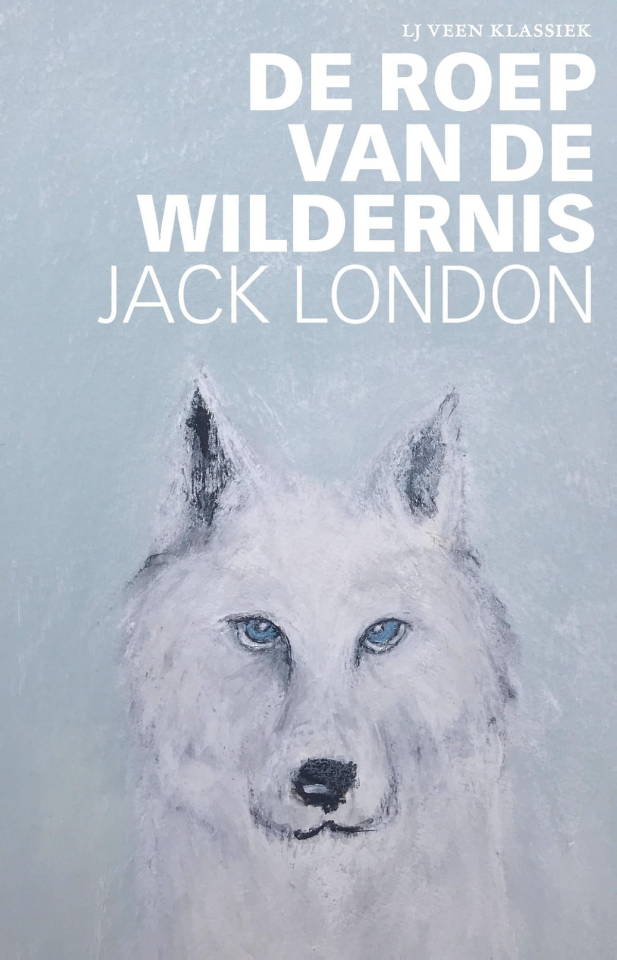



Various Dutch covers of The Call of the Wild by Jack London.
#xenofiction#the call of the wild#fun fact the last one is the one i first read the book in so major nostalgia for that cover#it's a compilation with call of the wild and white fang#and i'd just stare at the cover art for hours as a kid#idk i just read it so often. i borrowed it like at least five times in the span of a few years#ofc now i own my own (english) copy so there's no need for the library edition anymore#but i'll always have major nostalgia for that one cover#tekst
8 notes
·
View notes